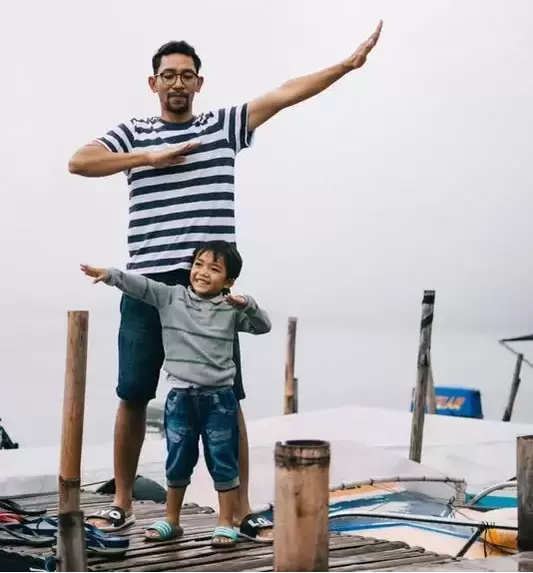
Being "in the moment" with your kids and creating positive, nurturing spaces for them to express themselves, laugh, grow, learn and explore will not only strengthen your bond, but build their confidence, sense of self, emotional intelligence, and understanding of the world around them.
Here are some meaningful and mindful ways to connect with your little ones this weekend.
1. Create Special Rituals
Family rituals are special things you do regularly with your loved ones. They help kids feel that the world is a safe and predictable place and gives them something to look forward to. It might be something super simple like an ice-cream after school, or "Netflix Friday movie night". The key is making it enjoyable. Make popcorn for your movie night, add snuggly cushions, dim the lights (a la at-home cinema experience) and pick a flick that’s entertaining for you both. Think action, laughter, deeper storylines and inspiring themes that prompt discussion afterwards.
2. Allow them to talk
It's easy to get caught up in the belief that we know better. But it’s worth remembering that it’s okay not to have all the answers, particularly for some of the tougher questions. Instead, let your kids speak. When they ask if "it’s important to be beautiful", you can turn it back on them: What do they think is beautiful? You’ll encourage your child to think about the deeper issues in life, while side-swerving answering a question that---let’s be real---none of us have the answer for. Listen with empathy, your full attention, and while resisting the urge to interrupt.
3. Encourage them to design their day
Give your kids the reins by letting them design a day out with you. What does it look like when they’re in the driver’s seat? They might suggest hitting the zoo to discover deadly native reptiles have a picnic at the park, or go for a bike ride.
This "choose your own adventure" approach will empower your child with the ability to make decisions, think independently and build confidence. It's also a sneak peek into what they deem fun (as opposed to our preconceived ideas), so make sure "go with the flow" and relinquish some control (within reason, of course!).
4. Play with them
We’ve all been there – hit the park and had the phone glued to our ear for the entire time, feigning interest in sandcastles and slides. But playtime is actually a vital part of childhood, and while it might be easier to watch from afar, there are strong benefits to getting involved and playing with your child.
Parent-child play can help the development of skills including creativity, memory, motor skills, cognitive flexibility, regulation of emotions, and leadership skills. It's also a lot of fun, for everyone involved! If playgrounds aren’t your thing, use your imagination (or let your child design the play). How about pillow fights, building a fort, playing hide and seek, painting, cooking, building blocks, performing a show (you know you want to bust out your microphone and sing Adele), or let them design their own game.
5. Show affection
A parent’s love goes a long way. How you interact affectionately with your child can do wonders for their well-being and health both in the moment, and for years to come.
Kids crave daily attention and affection and showing them love with appropriate physical touch and affirmative words will allow them to feel safe, cared for and important. In turn, this goes on to greatly affect their happiness, self-acceptance and social relationships.
This could be cuddles every day, kisses when dropping them off at school, making rituals such as tickling their back at bedtime, and reminding them that they are loved by you and their entire family.
